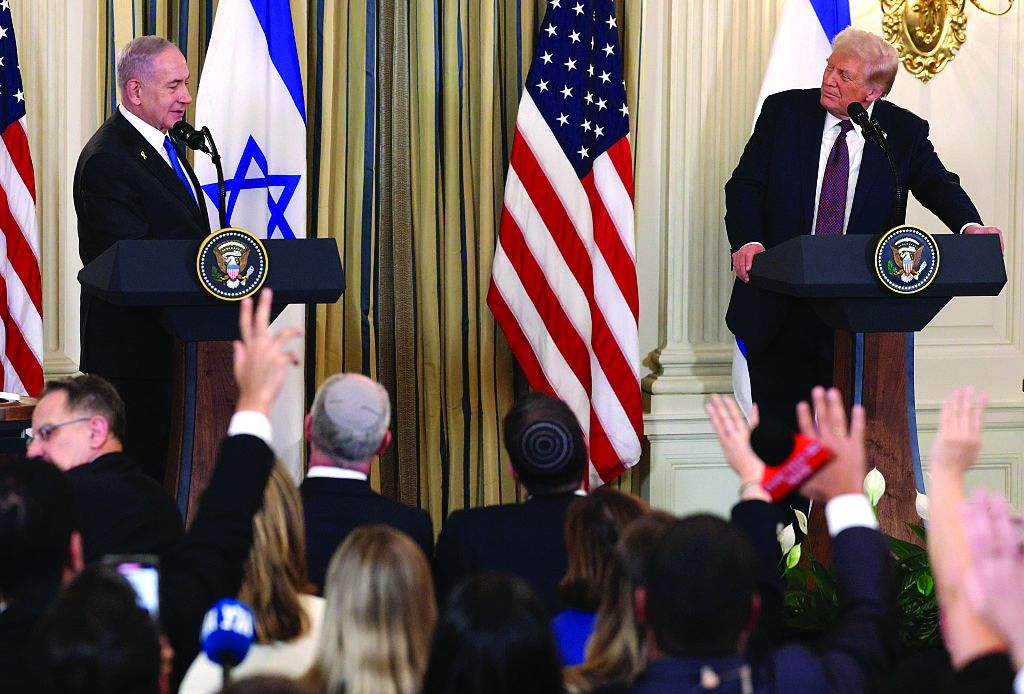It was impossible not to feel hopeful as the most powerful man in the world waxed dreamily about solving a conflict he says is “thousands of years old” and aiming for nothing less than “eternal peace in the Middle East.”
What is noteworthy about Trump’s plan, which got the support and input of Prime Minister Netanyahu, is how detailed and thoughtful it is. To give just one example, here is how the plan would kick off:
Once both sides agree to the deal, the fighting will stop. Israel will freeze its positions, aerial and artillery strikes will cease, and battle lines will remain fixed to enable logistics and monitoring. Within 72 hours of Israel’s public acceptance, all hostages, alive and deceased, are to be returned.
The plan is loaded with such appreciation for logistics and execution. Everything is thought through, from how the swaps would work to who would run Gaza during the transition to what happens to Hamas to humanitarian aid and Gaza reconstruction to reforming the Palestinian Authority to legal, political and diplomatic questions that would arise, and so on.
But while the plan shines with thoroughness, it overlooks the biggest obstacle to success: The loose terrorist whose specialty is to destroy anything good.
Israel has decades of experience with this phenomenon, when one mad terrorist can destroy dreams of peace.
Let’s be realistic: Even in a best-case scenario where Hamas agrees to Trump’s plan, the contempt for Jews and Israel will remain in the soul of every armed Hamas terrorist.
What happens, then, if a bomb explodes just as the implementation of the plan is in full bloom and murders international workers or Israeli soldiers?
Who will have the stomach to move forward with a peace plan while the dark face of evil has arisen to remind us it hasn’t gone anywhere? Who will jump in to take care of the situation, and what damage will that do to the plan if things escalate?
According to press reports, “the plan does not specify who secures border crossings, oversees weapons storage sites, or polices neighborhoods. Clear mandates for international monitors, joint operations rooms, and rapid de-escalation channels would be needed to avoid a security vacuum.”
That’s like saying we’re not sure what we’ll do if the security situation blows up, but let’s cross that bridge when we get there.
In the Middle East, that bridge is always there.
Those “clear mandates” the plan needs to avoid a “security vacuum”? If you ask me, that should come first.
Of course, I’d love nothing better to be wrong and that freelancing, Jew-hating terrorists won’t sabotage Trump’s plan. And let’s not underestimate the prospect of getting the hostages home (as a friend in Jerusalem told me, “that’s all I care about.”)
But in terms of Trump’s big, beautiful plan, we’ve learned the hard way that in Israel’s neighborhood, without hard security, dreams can easily melt into nightmares.




